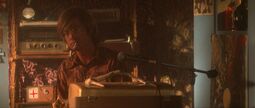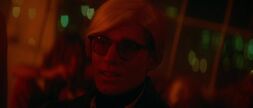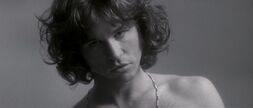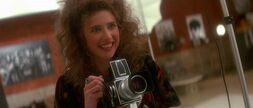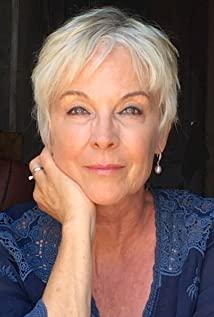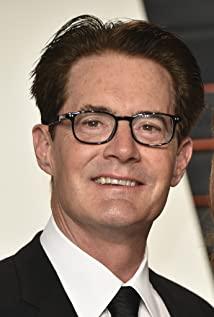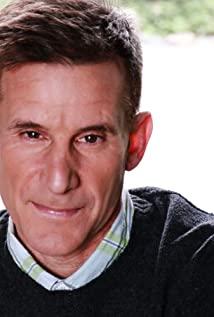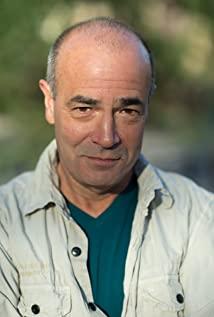Jim Morrison studied at the Film School of UCLA (University of California, Los Angeles). By chance, he and his classmate Ray Manzarek had the idea of forming a band, and later the band The Doors. The name of the band comes from Aldous Huxley (Aldous Huxley) [Aldous Huxley: British writer, famous work is Brave New World ("Wonderful New World"), settled in Los Angeles, USA in his later years, engaged in mysticism Philosophical research. ]’S book The Doors of Perception ("The Doors of Perception"), to be precise, is derived from the two-line poem of William Blake quoted in this book: "If the doors of perception were cleansed / All things would appear infinite "(When the door is washed, everything will become infinite).
Morrison became the first rock icon, not only because of his music, but also because of his lifestyle and his early death. Morrison's early death made his young image permanent, just like Keats, Shelly and Lord Byron in our memory. Rock music is a "young" art: youth represents the willingness to seek change and pursue possible; youth also represents rebellion-rebellion against all things that prevent change. Morrison said: "I am interested in anything to do with revolt, disorder, chaos, and especially activity that seems to have no meaning." behavior). Revolt is not only "revolt" but also "change". It is derived from the Latin word revolvere, which means "turn, roll back" (turn, roll back). In Shelly's Prometheus Unbound ("Prometheus Freed"), it was not Prometheus that defeated the great god Zeus, but Demogorgon-the demon in the orthodox religious myth, the transformation in the new myth The god of creation and the god of creation. Demogorgon symbolizes the destructive power of the "old order" and at the same time irresistible creativity, just like the west wind in "Ode to the West Wind".
Morrison's music may not be the best of his contemporaries, but his extensive books and profound ideas have made his works the most influential of his contemporaries. Like Shelly 150 years ago, Morrison is not only writing poetry, but also exploring a new belief system that can replace that aging belief. In "An American Prayer", Morrison wrote: "Let's reinvent the gods, all the myth of the ages / Celebrate symbols from deep elder forests" The mythology / celebration symbol from the deeper forests). The most important of the gods worshipped by Morrison is Dionysus, a god similar to Demogorgon. In The Birth of Tragedy ("The Birth of Tragedy"), Nietzsche believes that the spirit of Dionysus, the spirit of Dionysus, is the core of the spirit of Greek tragedy. Dionysus, or Bacchus, is not only the god of wine, but also "god of the life force, the instinctive side of the personality, and the male principle of fertility." ). Unlike Christian monotheism, the polytheism of Greek culture is more prominent in "change." Christian gods have eternal reign, and Greek gods, like all living beings, have not only happiness, anger, sorrow, but also birth, old age, sickness and death. The new gods resist and replace the old gods are one of the core contents of Greek mythology. The great thing about Dionysus is that he never formed his own tyranny at any time, but led his followers-the Bacchantes-around the world, wherever he went, the tyranny would be overthrown.
Dionysus may also be called God of Madness. People who don't like Morrison, including his father, say he is "a complete nut case" (a complete nut case). Shakespeare said: "The lunatic, the lover, and the poet / Are of imagination all compact." Morrison can be considered as having these three identities. Crazy is an interesting cultural phenomenon, and the deepest part of madness may be higher wisdom. Zhuangzi's "Chu madness meets the public" and Shakespeare's King Lear are all examples of wise lunatics. The French philosopher Michel Foucault once wrote the famous Madness and Civilization ("Madness and Civilization"). According to his theory, madness is not a pathological state, but a different state of perception, a state of perception that is different from what is usually called "rationality," but it is only a different state of perception. This state was "awed" by people in the Middle Ages and the Renaissance. When people are getting tired of the old "order" and way of thinking, this "irrational" or "super-rational" state of perception becomes what more and more people are willing to try and even seek. The wave of LSD (a narcotic) that was popular in the United States in the 1960s is an example. LSD also had a more mysterious name at the time, called Instant Zen. Jim Morrison is also a follower of Instant Zen, and the music of The Doors is also classified as Psychedelic rock (psychedelic rock). LSD is probably as effective as the wine given to the world by Dionysus. Psychologist William James discussed the connection between "drunkenness" and "mystery": "The sway of alcohol over mankind is unquestionably due to its power to stimulate the mystical faculties of human nature,
It's a pity that Oliver Stone's biopic The Doors superficially portrays Morrison as an arrogant, alcoholic, and almost crazy prodigal, while Morrison's true inner world has not been discovered. The so-called soulmate is hard to find, and many Morrison fans may just imitate his alcoholism, gloom and unruly. The Danish philosopher Søren Kierkegaard described the poet’s awkward situation: “A poet is an unhappy being whose heart is torn by secret sufferings, but whose lips are so strangely formed that when the sighs and the cries escape them, they sound like beautiful music... and then people crowd about the poet and say to him: "Sing for us soon again;" that is as much as to say. "May new sufferings torment your soul." ( The poet is a sad thing. His heart is torn apart by secret pain, but his lips are strangely shaped. When sighing and crying, they sound like wonderful music... So people surround the poet, Said to him: "Hurry up and sing another song for us." What they mean is: "Let the new pain torment your soul.") Compared with Kierkegaard, Morrison is more confident in the social attributes of the poet: The poet’s task is not to express himself, but to open a door to the audience. The British poet Coleridge once portrayed a painful chanting in "The Rime of the Ancient Mariner". The old sailor, The old sailor looked a lot like Morrison. Morrison's poems are his way of exploring freedom, just as the old sailor's songs are his way of atonement, and for his readers and listeners, those songs are a kind of catalyst. Morrison said: "There are things known and things unknown and in between are the doors." "Listen, real poetry doesn't say anything; it just ticks off the possibilities. Opens all doors. You can walk through anyone that suits you." Kind of possibility. Open all the doors. You can go through the one that suits you.) For Morrison, the existence of a door is not an end, but a possibility. The poet will lead the audience to "Break on through, to the other "Side" ("cross, over to the other side", the title of a song by The Doors). The side of the door is "freedom". Morrison said: "The most important kind of freedom is to be what you really are". So how does Morrison define himself? "I see myself as an intelligent, sensitive human, with the soul of a clown which forces me to blow it at the most important moments." So at the most critical moment I always mess up.) This clown can’t laugh, he is Pierrot the Clown [Pierrot the Clown: A well-known image in French drama literature, the word Pierrot has been absorbed into English. It describes someone who behaves like Pierrot the clown. It can be said that Somebody is Pierroting. ], a bitter face, trapped by love, but far away from reality. However, like all clever clowns, he always asks some wise questions, allowing us to reflect on our lives.
People remember the twelve-minute song "The End", because in the middle of the song Morrison shouted hoarsely "Father, I want to kill you. Mother, I want..." [ We couldn't hear exactly what Morrison was shouting. Most critics think it is "f-you". But if we think of it as a scream that cannot be expressed in words, perhaps it makes more sense. ] This may remind us of Oedipus, the poor man destined to kill his father and marry his mother. But if Oedipus’s killing of father and mother is derived from creation and mischief, then Sigmund Freud (Freud) fixed this “emotion” through the so-called Oedipus Complex theory and made it a human being. The mental state that must be experienced in growing up. According to Freud, after experiencing the Oedipus stage, we can finally transition from a child mentality to an adult mentality; but if this transition is not smooth, we may suffer from mental illness. Morrison said "The End" is a song about farewell, perhaps a farewell to childhood. The carefree childhood is both yearning and suspicious, because we have no self in childhood, and we are more like unfinished works in the hands of our parents. Only when the work gets rid of the control of the author, can it have its own independent life. For Morrison, farewell may never be complete, just as we can never get rid of the creator's imprint on us. This crazy song was used in the same crazy movie Apocalypse Now ("Apocalypse Now" ["Apocalypse Now": Francis Ford Coppola (FF Coppola) directed the famous anti-Vietnam War theme film. The plot of the script is based on the novel Heart of Darkness by the British writer Joseph Conrad. ]) as background music. In keeping with the theme of the movie, this song is not, at least not only about Oedipus, but about the emotions we are overwhelmed when we wake up from childhood dreams. As Morrison said, the biggest obstacle to freedom is our own fear of freedom. Because the synonym for freedom may be "loneliness." Colonel Kurtz in the movie gets rid of the American government that has gradually disappointed him, and becomes a terrible innocent tyrant in a small village in Cambodia, just like the child of an out-of-control father. British writer Kazuo Ishiguro (Ishiguro Kazuo) [Ishiguro Kazuo: contemporary Japanese-born British writer, masterpiece The Remains of the Day ("Leave Traces in the Day"). ] At the end of the novel When We Were Orphans ("Shanghai Orphans") it says: "But for those like us, our fate is to face the world as orphans, chasing through long years the shadows of vanished parents. There is nothing for it but to try and see through our missions to the end, as best we can, for until we do so, we will be permitted no calm" (For those of us, we are destined to face this like orphans The world travels through the years to follow the shadow of our disappeared parents. We have no choice but to do our best to fulfill our mission, because only by doing so can we gain inner peace.) "Farewell" is not the end, but the mission. Start. In the new search, we re-recognize the world and our parents, and then we grow up unknowingly.
(This article has been published in the 5th issue of "English Learning" 2010, please indicate if you reprint it.)
View more about The Doors reviews



